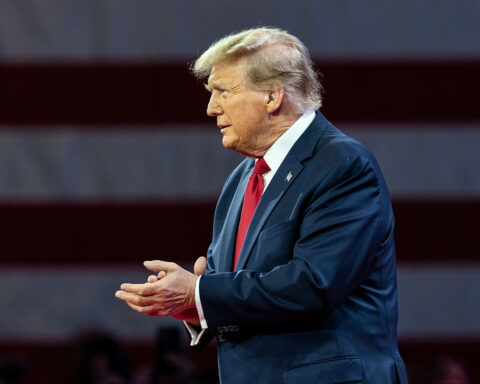Ahead of the upcoming elections, a group of technologically adept Democrats is preparing to revolutionize the way political campaigns are conducted. Led by Tech for Campaigns, these individuals are embracing advanced artificial intelligence (AI) technology to redefine campaign strategies and outreach methods.
With the assistance of cutting-edge AI tools such as ChatGPT and Google’s Bard, this coalition aims to streamline the creation process of digital ads and fundraising emails. By employing generative AI algorithms, they can rapidly generate compelling content, including text, images, and even human-like voices, based on minimal input.
Initial trials of AI-assisted emails have yielded promising outcomes, particularly in terms of fundraising efficiency. During Virginia’s 2023 elections, a pilot project involving 14 campaigns demonstrated that emails composed with AI assistance generated three to four times more fundraising dollars per work hour compared to those crafted solely by human hands.
While Tech for Campaigns spearheads the integration of AI into campaign support, major tech corporations like Facebook and Google are also entering the fray with their own AI-generated advertising solutions. However, the utilization of AI in political campaigns is not without its challenges and controversies.
Instances of AI-generated robocalls and dissemination of disinformation have prompted regulatory actions from entities like OpenAI and the Federal Communications Commission (FCC). These regulatory measures aim to mitigate the risks of AI misuse in political contexts and uphold the integrity of electoral processes.
In response to growing concerns, tech companies have pledged to implement safeguards to prevent their AI algorithms from being manipulated for malicious purposes. Additionally, bipartisan efforts are underway to address the legal and ethical implications of AI adoption in electoral campaigns.
Despite the transformative potential of AI in enhancing campaign outreach, experts emphasize the importance of responsible and regulated deployment. The risk of AI being exploited to propagate misinformation or violate campaign finance laws underscores the need for robust oversight and accountability mechanisms.
Tech for Campaigns acknowledges these risks and advocates for transparent discussions on regulatory frameworks. Co-founder Jessica Alter underscores the necessity of striking a balance between innovation and accountability, urging political parties to embrace AI cautiously but not shy away from its potential benefits.
As both Democrats and Republicans explore the capabilities of AI in campaigning, the landscape of political advertising stands on the brink of significant transformation. With figures like Brad Parscale, former campaign manager for Trump, also delving into AI-powered digital campaigning, the competition to leverage technology for electoral success intensifies.
As the election cycle unfolds, the role of AI in shaping political discourse and strategy will undoubtedly evolve, eliciting ongoing scrutiny and debate over its implications for democracy.







